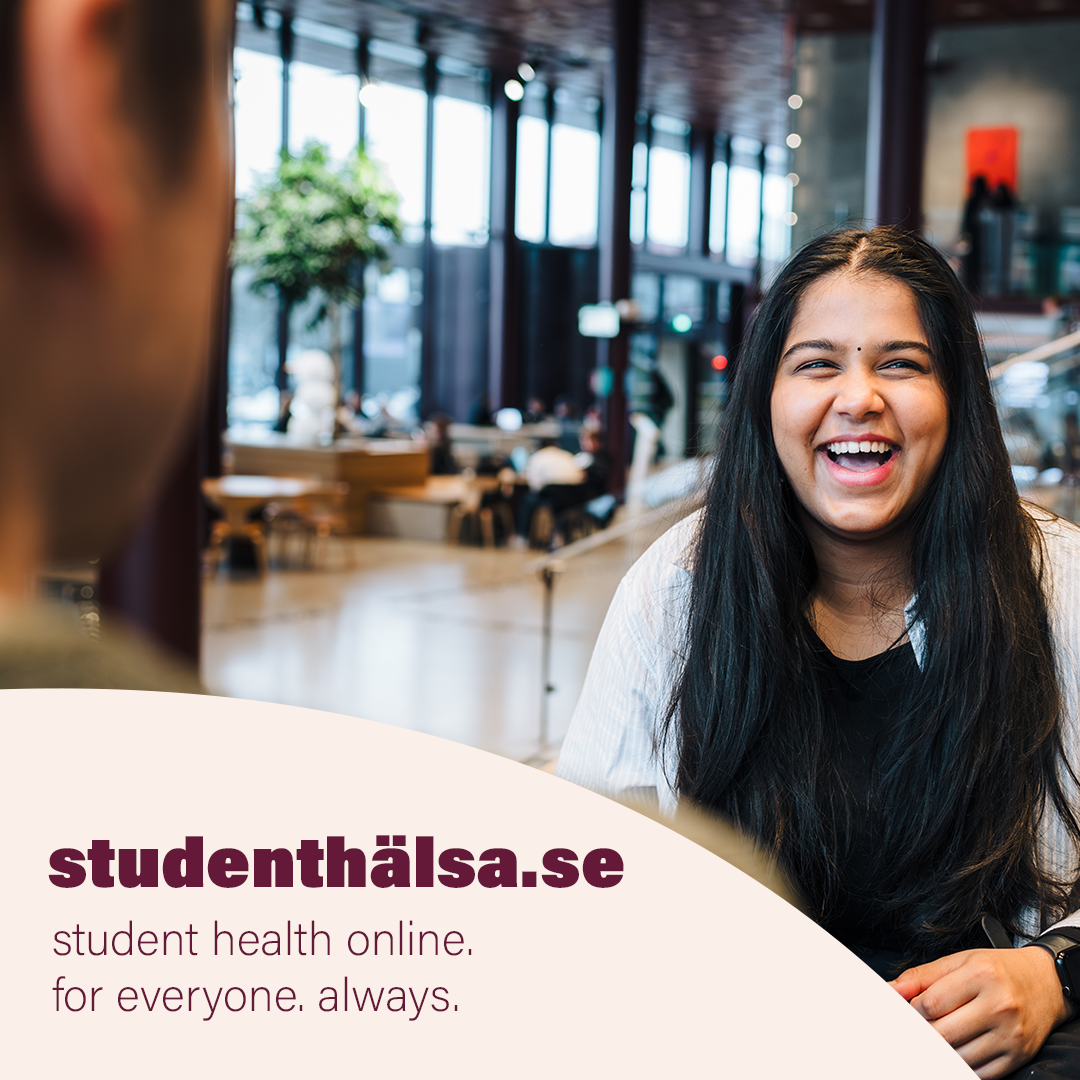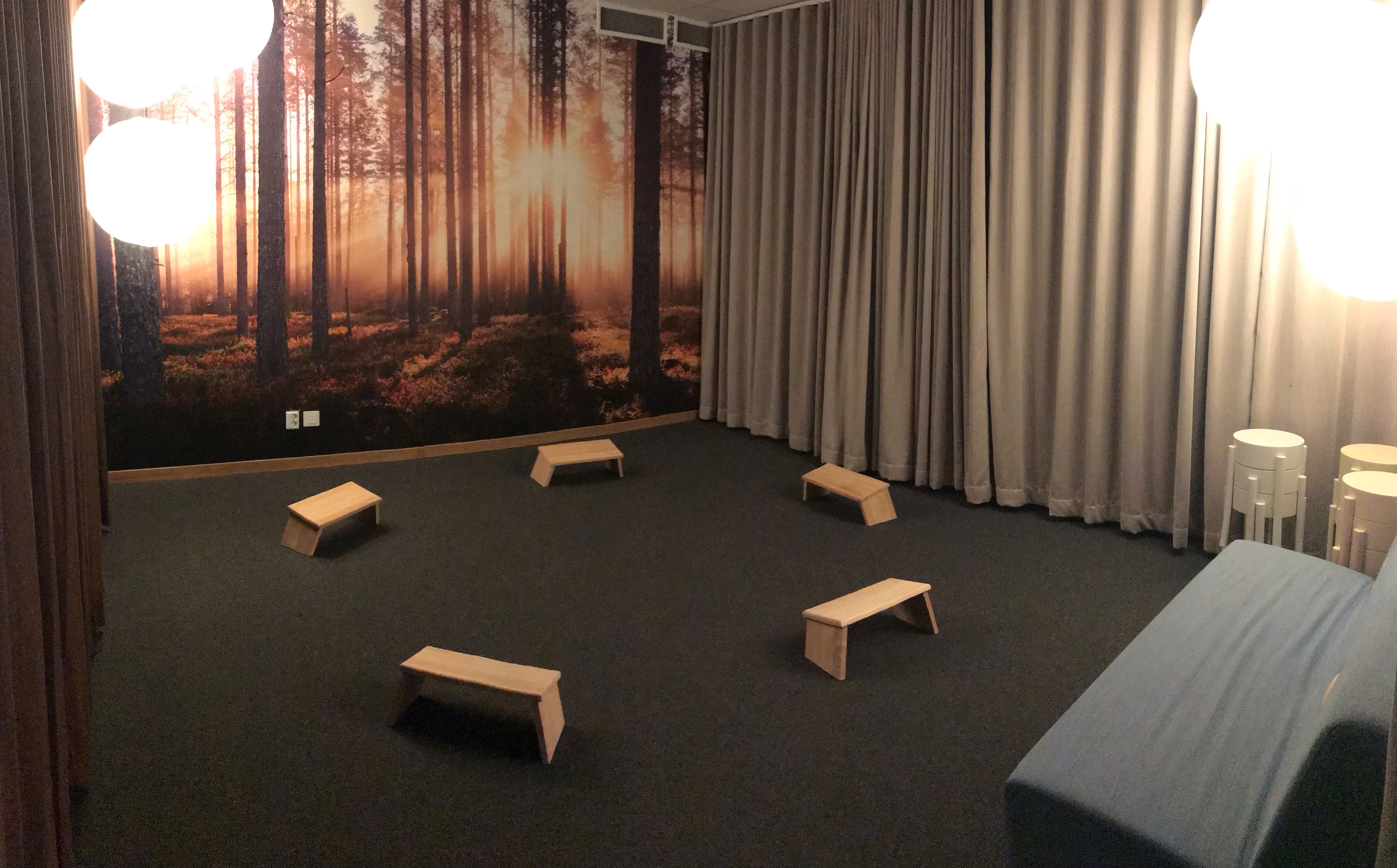How can we help?
Fun, self-growth and new knowledge and understanding are often words associated with life as a student; however, there are also times when demands can be high. What is happening at a personal level can also negatively affect your studies. This may lead to such problems as stress, depression, anxiety, and low self-esteem.
You can contact a student counsellor when you need to talk to someone about your situation. We offer individual counselling and various group activities, workshops and lectures: you can see current activities in the calender at the student web. Our services are free of charge and we are bound by confidentiality.
Contact
If you want to book an appointment on campus Borlänge, send an email to kurator@du.se. If you prefer Zoom, telephone och campus Falun, you can see available dates/times and book an appointment in our web booking service:
web booking - supportive counselling.
If you do not want to book an appointment but still want to get in contact with us, you can email kurator@du.se. Be sure you do not include anything sensitive in your email. You can also reach us by telephone through the university switchboard: 023-77 80 00.
Medical Services
Please note that we do not offer medical services. If you are ill and need medical care, you need to call 1177 (Vårdguiden) or contact a health center (vårdcentral). In case of emergency, call 112.
Information about Medical and Dental Services
Activities
Academic Resource Centre
The Academic Resource Centre offers ways to facilitate your studies and help you in your personal growth and academic achievements. The centre coordinates and provides access to various university support functions, so that you can quickly and easily locate the services you are looking for.
Read more about the Academic Resource Centre here.
University Walk and Run
Every year in May, we arrange University Walk and Run. Both students and staff are invited to run or walk and you can bring your family members or friends. We really hope you will register for the next University Walk and Run in May 2025! More information will come.
A peaceful moment
Every Monday, the Student Health Services invites you to a moment of stillness and an opportunity to connect to yourself. Sometimes we just sit quietly together, sometimes we do a breathing- or mindfulness exercise. No prior knowledge or registration is required, just come as you are.
When: Mondays at 12.05-12.15. Start date for the autumn semester will come soon!
Where: Stilla rummet/Silent room (Ljusgården campus Falun)
Hikes/Walks
Student Health Services arrange hikes/walks for students in both Borlänge and Falun. More information to come.
Dance for Health
Do you feel stressed? Do you suffer from symptoms like anxiety, fatigue, rapid heartbeat, or headache? Then Dance for Health is for you!
Welcome as you are. You don´t need any previous dancing experience. You just need to be curious about how movement and dance can increase your well-being and lower your stress levels.
The next occasion is planned for the autumn semester 2024.
Silent Room
Campus Falun: There is a silent room that may be used for praying, meditating or just taking a quiet break from your studies.
Campus Borlänge: We have a silent room (for praying, yoga etc) and a resting room (if you for example have a headache or just want to rest for a while). You find both rooms on floor 2.
Please, note that these rooms are not ment to be used for studying or if you get seriously ill.
studenthalsa.se
Visit studenthalsa.se - a website open to all students, regardless of which university you're studying at. Here you'll find facts, events (online) and interviews that can provide you with tips and advice for improved wellbeing.
Stress
Stress is a natural reaction that gives us the strength and energy we need to cope in difficult situations. The body is built to cope with short-term stress; but the long-term stress; when our bodies never have the time to recover; can lead to problems.
When we are confronted with something we find threatening, our bodies react through stress. It is a biological fight-or-flight response that prepares us to face the threat we perceive.
It is worth noticing that the brain cannot distinguish between real and imaginary threats: we react in the same way to both. Therefore we can become stressed by simply thinking about a difficult situation, past or present, or about how inadequate we may feel ourselves to be.
Common Symptoms of Stress
- fatigue
- sleeping problems
- tense muscles
- rapid heartbeat
- dizziness
- concentration and memory issues
- depression
- anxiety
- stomach pain
Mindfulness
Mindfulness is about being aware of our feelings, thoughts and physical reactions at a given moment and learning to accept them. When we are aware of our thoughts, feelings, and experiences, we have a greater ability to choose how to act in different situations. Both positive and negative thoughts and feelings can come to us when we stop and are present in the moment. This is natural yet may feel difficult. Often, this gets easier with practice, and the nervous system understands that it is not dangerous to simply wind down. If the negative feelings you experience are very strong, it may be worth seeking help to get guidance in a technique that works for you.
Self-compassion
Self-compassion is an area of mindfulness that is about dealing with life’s setbacks. To face what is difficult, what creates stress and to accept our shortcomings with kindness and understanding instead of being harsh and judgmental towards ourselves not living up to our expectations. Self-compassion can, for example, make it easier for us to deal with self-criticism.
Self-compassion has three parts:
- You face the pain but do not get stuck in it.
- You realize that you are not alone.
- You actively reassure yourself and show kindness to yourself.
Face the pain but do not get stuck in it
We would rather distance ourselves from what causes us pain; however, if you always fight emotional pain, it may weigh you down even more. Emotional pain requires care just as does a scrape on your knee. When you dare to face your pain, you allow yourself the opportunity to deal with it. Deal with your pain like a sensitive adult would deal with an injured child. Treat the injury and console yourself, but do not allow yourself to be swallowed up by it. Ask yourself what you need right now to make things easier.
You Are Not Alone
Everybody faces challenges in life. Most people are also self-critical. Feelings such as anxiety, shame and worthlessness may be easier to deal with if you understand that you are not the only one to feel that way and that these feelings are an unavoidable part of life.
Self-compassion is not about glorifying yourself or your life; rather, it is about recognizing that life is tough for everyone – nobody can escape that reality.
Practice Your Self-compassion
You can practice the compassion for yourself. Mindfulness is the basis of self-compassion, so it can be helpful for you to have experience of mindfulness before you begin practicing, but experience is not necessary. However, you need to become aware of your difficulties and your suffering to be able to give yourself comfort.
You can find mindfulness exercises on the website self-compassion.org
Exercises
If you are feeling stressed, it is often enough to simply slow down and rest more than normal. Consider whether you can lessen the demands that both you and your surroundings place on you. Below you can find some exercises to use at times of stress. Studies show that when people breathe quietly, relax and are mindful in the present, they reduce their level of stress, anxiety and depression. Some also find that these tools can be helpful in dealing with various types of difficulties and pain.
A Simple Breathing Exercise
For one minute, just focus on your breath. Be aware of the breath moving in and out, in and out through your nose. Observe how it feels, how it sounds, how deeply you breathe. Observe without evaluation or judgement. It may be easier to count your breaths 1 to 5 and then start over from 1. It is normal for your thoughts to wander, but as soon as you notice that you are thinking about something else, get back to focusing on your breath again.
You can practise in different situations: for example, lying down, standing up; inside and outside; at the supermarket or in the bus queue. Use a timer to make sure you remember to practice.
Here is a recorded exercise you can use to relax:
Listen to Kind relaxation focusing on the breath (ca 8 min)
SAHA – Stress and Health Advice
SAHA provides web-based support to those experiencing stress who want to try to achieve a better sense of well-being on their own.
On the website, you can find simple texts with information, advice and exercises to address problems with depression, anxiety, insomnia, stress and worry.
Lifestyle Test
While you are a student, you will face a number of challenges. By looking at the way you live, you can give yourself the best chances of feeling well and managing your studies and your free time. After each test, you will receive feedback on your results and tips about what you need to think about.
